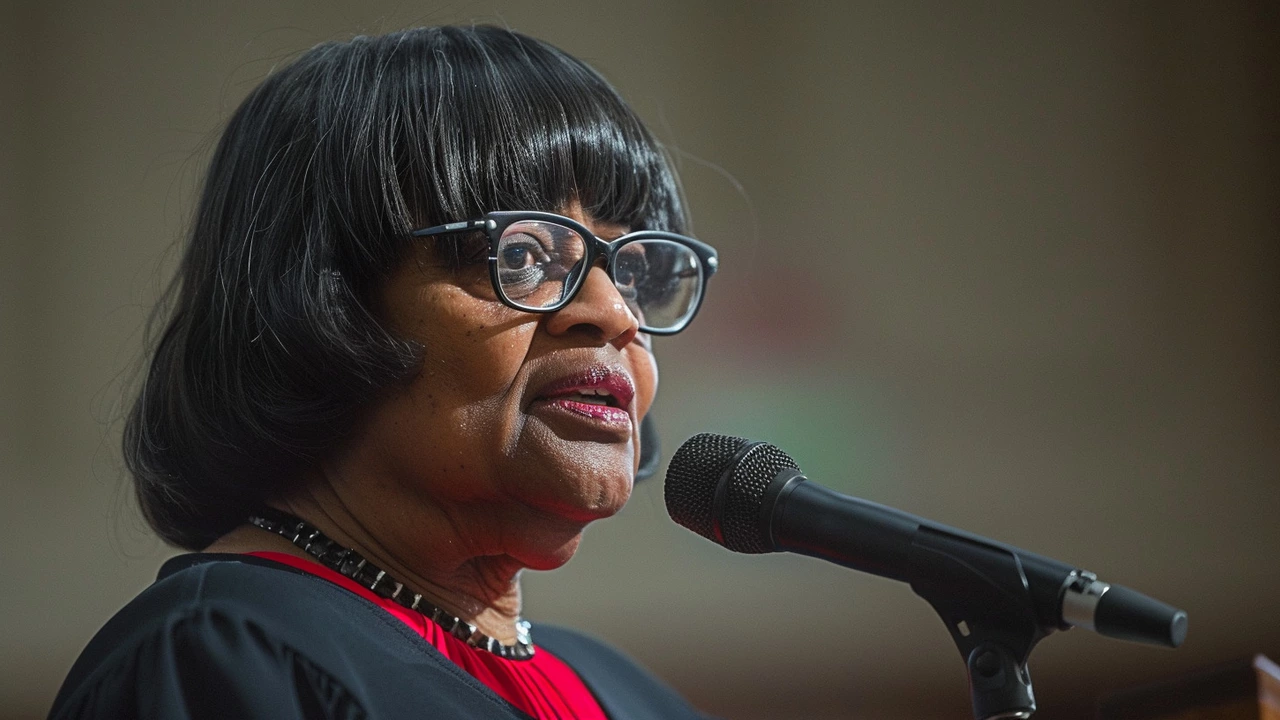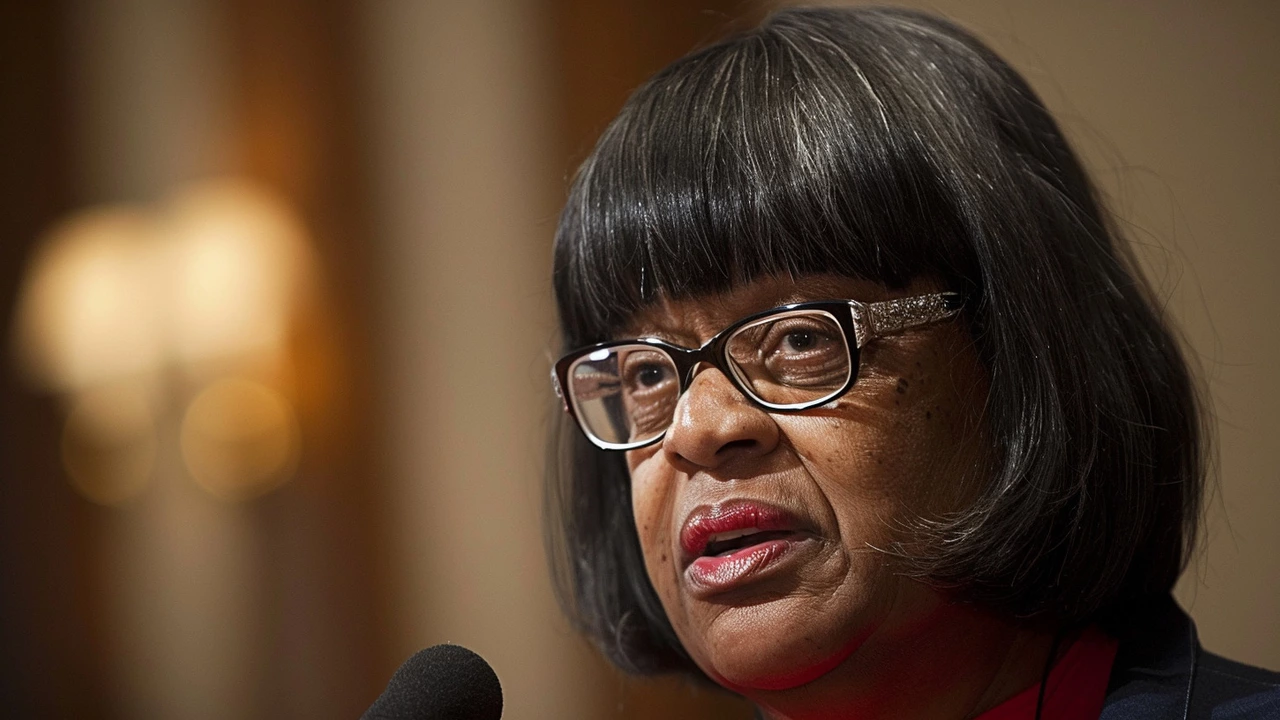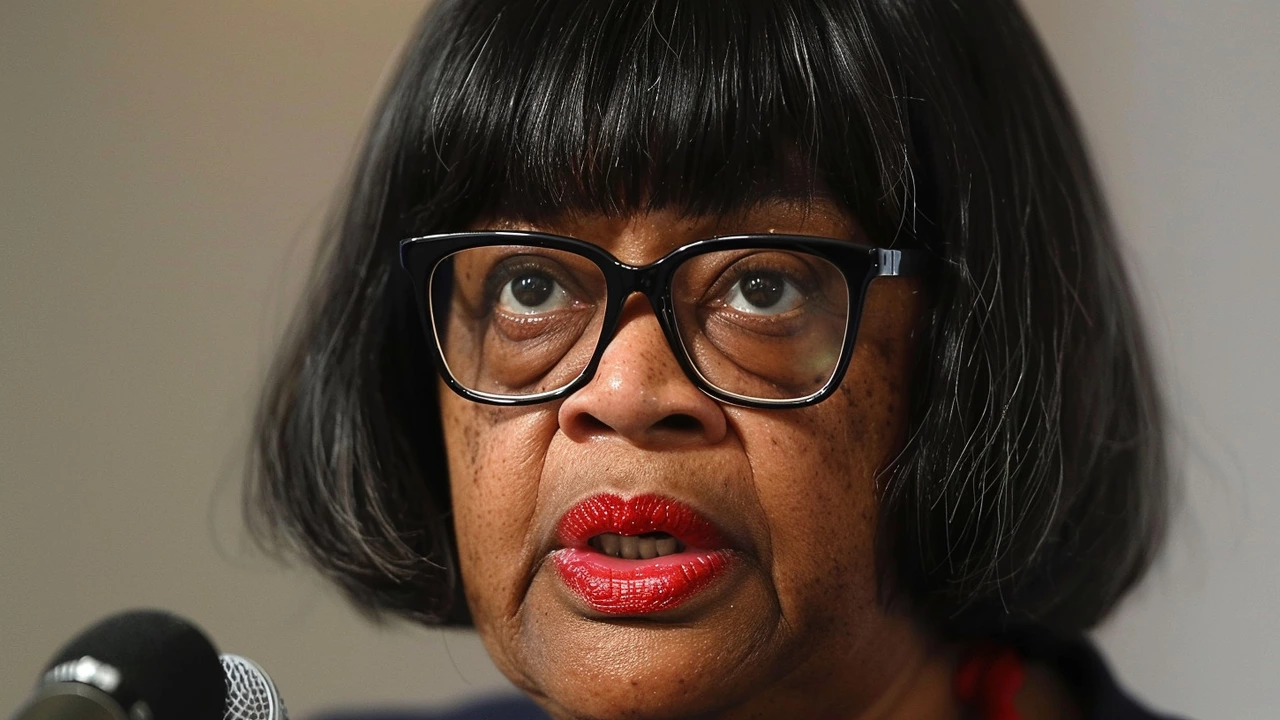Diane Abbott Rejoins Labour: Whip Restored After Racism Inquiry
Diane Abbott, a trailblazing figure in British politics as the first black woman elected to Parliament, has had her Labour Party whip restored. This decision comes after an exhaustive investigation into her conduct following a controversial letter she wrote to The Guardian newspaper last year. Abbott's letter had questioned the extent of racism faced by Jewish people, drawing a contentious comparison to the prejudice experienced by 'redheads.' The resulting backlash led to her suspension from the Labour Party and an ongoing political saga.
In her letter, Abbott appeared to minimize the unique nature of anti-Semitic discrimination by suggesting that it was akin to the discrimination against people with red hair. The letter sparked immediate outrage, not merely among Jewish communities, but also across the broader political spectrum. Many viewed her comments as insensitive and dismissive of the very real and historical injustices faced by Jewish people. The Labour Party, quick to respond, suspended Abbott and launched an investigation to determine the full scope and intent behind her words.
Abbott's Apology and Independence
Despite the suspension, Diane Abbott did not retreat from the public eye. Instead, she issued a formal apology, acknowledging her misjudgment and expressing regret for her comments. In her apology, she stated that she had made a 'clear mistake' and reiterated her commitment to fighting all forms of racism. Yet, even with the public apology, the investigation was deemed crucial by the Labour Party to affirm their stance against any form of discrimination within its ranks.
During the investigation, Abbott continued to serve her Hackney North constituency as an independent Member of Parliament. Her role as an independent MP allowed her to maintain her duties and support her constituents amid the controversy. Her prolonged service without the Labour whip showcased her resilience and unwavering dedication to her political career and public service.

The Investigation's Findings
Labour's inquiry into Diane Abbott's conduct was both comprehensive and thorough. The investigation examined the context of her comments, her history of public service, and her participation in addressing issues of racism and discrimination. Sources close to the investigation revealed that various community leaders and political figures were consulted to provide a holistic understanding of Abbott's intentions and the impact of her words.
Ultimately, the investigation reached a conclusion that Abbott's comments, while ill-judged, did not reflect a broader intent of prejudice or malice. The findings acknowledged her long-standing commitment to progressive values and her significant contributions to the Labour Party. Consequently, the Labour leadership decided to reinstate her whip, signaling her return to the fold of the party she has been a part of for decades.
Impact on the Upcoming Elections
With her whip restored, Diane Abbott is poised to contest the upcoming elections in her Hackney North constituency. Her reinstatement into the Labour Party bolsters her campaign, reuniting her with a network of support essential for a robust electoral effort. Abbott's return to the Labour fold has been welcomed by many of her supporters who see her as a pivotal figure in championing diversity and equality within British politics.
There is no doubt that Abbott's candidacy will be closely scrutinized, given the recent controversy. However, her track record as a dedicated public servant and trailblazer for minority rights is likely to resonate with many voters who appreciate her advocacy and determination. The Labour Party, too, has a vested interest in presenting a united front, with Abbott's reinstatement signaling their commitment to reconciliation and internal solidarity.
In the grander scheme of British politics, Diane Abbott's return to the Labour Party is a significant event. It underscores the complexities of addressing racial and ethnic tensions within public discourse and the responsibilities of political figures in navigating these sensitive waters. Her case serves as a reminder of the continuous effort required to cultivate an inclusive and respectful political environment.
Lessons Learned and Moving Forward
The saga of Diane Abbott's suspension and subsequent reinstatement offers several crucial lessons for politicians, parties, and the public alike. At the heart of the matter lies the importance of words and their profound impact on communities. Public figures, especially those in positions of influence, must exercise an acute awareness of the weight of their statements and the potential repercussions.
For the Labour Party, the incident highlights the enduring challenges in maintaining a delicate balance between freedom of expression and the imperative to denounce hate speech. The party's processes for handling controversies, ensuring accountability, and fostering dialogue are all pivotal in sustaining public trust and moral authority.
Abbott's experience also underscores the crucial role of apologies and the willingness to own up to one's mistakes. Her immediate recognition of her error and subsequent apology played a significant part in the process of her rehabilitation within the party. This act of contrition, while not instantly absolving her of backlash, paved the way for a more measured and just resolution.
Going forward, Diane Abbott's reinstatement marks a new chapter in her storied political career. It offers her an opportunity to reaffirm her commitment to fighting all forms of discrimination and working towards an equitable society. Her journey, marred briefly by controversy, now stands as a testament to the ideals of redemption and the enduring nature of public service.
The Role of Public Sentiment
The public's reaction to Diane Abbott's reinstatement is an essential aspect of this narrative. Public opinion can often be divided, influenced by a multitude of factors ranging from personal beliefs to broader societal values. In the case of Abbott, many of her long-time supporters view her reinstatement as a rightful vindication, a moment of justice for a politician long committed to challenging racial inequity and advocating for the marginalized.
Conversely, there are segments of the population who remain critical, arguing that her initial comments were profoundly harmful and that her reinstatement could risk diminishing the seriousness of anti-Semitic discrimination. These contrasting views reflect the broader discourse on who sets the terms for acceptable speech and the accountability mechanisms within political structures.
Such public dialogue is crucial in shaping the future conduct of political figures and parties. It serves as a reminder that accountability in the public sphere extends beyond formal investigations to the court of public opinion. Politicians are, after all, representatives of the people, and their actions must align with the values and expectations of their constituents.

A Closing Thought
As Diane Abbott returns to the Labour Party, she does so with both the weight of her past and the promise of her future. Her story is a powerful illustration of the dynamic and, at times, tumultuous nature of political life. It also serves as a pertinent reminder of the need for continuous dialogue, empathy, and accountability in the pursuit of a just and inclusive society.
In reflecting on her journey, one must acknowledge both the imperfection and potential for growth inherent in all public figures. Diane Abbott's reinstatement opens a pathway for renewed advocacy, reminding us all that the road to equality is often paved with both milestones and missteps. Her return to Labour signals not just a personal victory, but a broader commitment to the values of redemption and reconciliation.
 May, 29 2024
May, 29 2024
